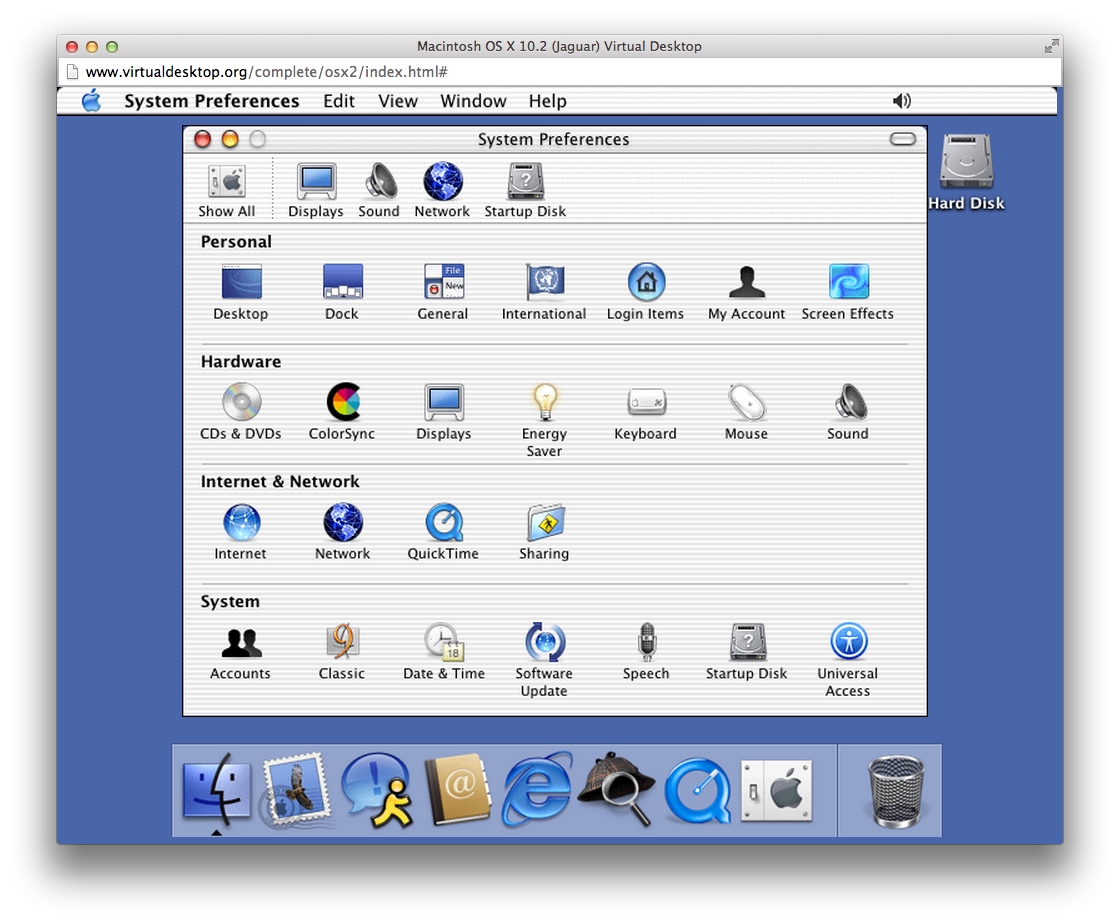Amule Download Mac Os X

English | Deutsch | Español | Français | Italiano
Download all kinds of contents from the Internet with aMule, the version for Mac OS X of the popular eMule download software. Requirements and additional information: Requires Mac OS X 10.4 or later.
- Scarica l'ultima versione di aMule per Mac. Un buon P2P per Mac proveniente da Windows. Anche se potremmo pensare che si tratti di una nuova applicazione, aMule.
- Amule mac os yosemite free download. AMule - all-platform eMule P2P Client aMule stands for all-platform eMule file-sharing program. It is affiliated with the eMule project an. Android 4+ - Linux Distros - Mac OS X or Mac Yosemite Download Android: https.
- This is where aMule (short for all-platform Mule) comes in to help you connect to eD2k and Kademlia networks using your Mac. Moreover, aMule is a comprehensive peer-to-peer file sharing client that can be used on all popular operating systems, such as OS X, Linux, and Windows, as well as over 60 more.
How to get and install aMule on Apple Mac OS X.
- You can simply download the finished application ('binary release');
- You compile it from a SVN source snapshot or stable release source.
- 2Compiling from source
- 2.1Get the sources and development tools
- 2.1.2Step 2: Install MacPorts
- 2.1.4Step 4: Compile wxMac
- 2.1Get the sources and development tools
Binary releases
If you don't want to bother with installing and compiling all those tools and sources, then get one of the pre-compiled aMule applications. The official release is considered 'stable', but every now and then applications are built from the current source to allow more people to test new features or the like.
Check the Mac forum for the most recent user posted binary: aMule forum
Now, to install the downloaded binary, just drag the aMule application to a folder of your choice (e.g., /Applications).
To start aMule, double-click the application icon.
Note: You might want to take a look at the Mac-specific usage article.
Compiling from source
Compiling from source allows most current bug reports, because you can compile and test the SVN snapshot of the very day.
To compile aMule from source you need some development tools, the wxWidgets library and the aMule source.
Get the sources and development tools
Step 1: Download and install Xcode
Xcode is Apple's development environment. We need it for the GCC compiler.
You will need at least version 2.1 of Xcode, a more recent version is preferable though. You can download the most recent version of Xcode from Apple, but you will need to sign up for a free-of-charge developer account first or log-in using your iTunes Store account.
- Get Xcode from http://developer.apple.com/tools/download
- 'Member Site'->'Log In'->'Download Software'->'Developer Tools'->'Download Xcode Tools last release'>'Install'
Step 2: Install MacPorts
MacPorts is an open source installer for lots of open source tools ported to Mac OS X. aMule needs a few of these tools to compile properly. Alternatively, you can also use Fink to install these tools or (Fink currently lacks many of the needed tools) you can install them manually .
- Download the most recent version of MacPorts
- Read MacPorts' documentation to learn how to install applications through MacPorts.
Syntax of most important commands
Packages list can be downloaded/updated through
You can upgrade all the packages installed with
Packages can be installed through
and removed with
Port variants can be invoked with the plus sign:
You can list all available variants with:
Notes about Universal variant
As stated here, MacPorts has different build_arch settings for universal variant. You can use this variant on Leopard to switch both ppc and i386 version on. Since Snow Leopard doesn't support ppc architecture anymore, the universal variant can be used to switch both i386 and x86_64 version on. Please note that default architecture on Snow Leopard is x86_64 if the CPU supports it, i386 otherwise.
WARNING: binutilsfails building universal. So you should set build_arch to i386 (about line 59) into /opt/local/etc/macports/macports.conf to be sure to build every port against i386 architecture (x86_64 is useless since 64-bit Carbon libraries does not exists and wxCocoa is not ready yet).
Step 3: Install libraries and tools
These are the package that provides (with dependancies) all needed libraries and tools to build wxWidgets and aMule with most of feature:

Download Mac Os Full Image
- automake
- binutils
- flex
- gettext
- libpng
- libcryptopp
- libiconv
- gd2
- jpeg
- libgeoip
- libupnp
- pkgconfig
This should be enough:
Step 4: Compile wxMac
wxMac is the port of the wxWidgets library for Mac OS X. This library is used to make aMule 'multi-platform'.
Get the source from: http://www.wxwidgets.org/downloads/ (Source Archives: wxMac) and extract the archive on your desktop.
Last stable version is 2.8.11 at now.Type
leave a space after the command, than drag and drop the wxMac uncompressed folder into the Terminal window: the complete path of the folder will be printed on screen. For example:
Press enter.The basic command to configure and compile the package is the following:
Note: The above command doesn't enable debug information. Debug informations allows you to submit a helpful stacktrace if aMule crashes or a sample if it hangs to the aMule developers. If you want to compile a debug version then you can use '--enable-debug --enable-debug_gdb' instead.
Snow Leopard
Building on Snow Leopard is tricky. You must focus on architecture, compiler version, compatibility. This should be enough to have compatibility with i386 Leopard and above:
followed by:
Step 5: Compile aMule
Download aMule source and extract archive into the same place of wxMac (i.e. your desktop if you are following out suggestion).Open a Terminal and type:
then leave a space and drag and drop aMule uncompressed folder whose path will be printed on screen, for example:
Press Enter. Now it's possible to configure the sources: there are several options that can be used to activate or deactivate feature during compiling. This is only an example, that provide a full feature aMule build:
Take a look to the configure page for a complete list of options.You should pay attention to these elements:
- The given example enables debug informations. To disable them exchange the option --enable-debug with --disable-debug --enable-optimize.
- The option --with-wx-config must point to the correct relative path of the compiled wxMac. The example assumes that aMule and wxMac folders are in the same directory (i.e. your desktop). You should also correct the wxMac folder's name according to its version (in the example is 2.8.10).
- The option --with-crypto-prefix should point to /usr/local/cryptopp if you compiled Crypto++ starting from its source, out of MacPorts.
- IMPORTANT! It seems that Mac OS version of ld tool is not able to make static library. So if you plan to run/install your compiled aMule on other Mac which doesn't have MacPorts installed you MUST remove the --enable-geoip-static option to avoid a crash when the program starts.
Now it's time to make you packages with:
Mac os unzip multiple files. and
You should find the aMule package in the same source folder.
Pick a software title..to downgrade to the version you love!
aMule Latest Version
aMule 2.1.3
- Released:
- Feb 24, 2011
- Size:
- 8.40 MB
- Downloads:
- 905
- Rating:
aMule Popular Version
aMule 2.1.2 (For Mac OS X 10.3)
- Released:
- Feb 24, 2011
- Size:
- 5.23 MB
- Downloads:
- 1,702
- Rating:
Select Version of aMule to Download for FREE!
| Software Version | Release Date | Size |
|---|---|---|
| aMule 2.1.2 | Feb 24, 2011 | 8.39 MB |
| aMule 2.1.2 (For Mac OS X 10.3) | Feb 24, 2011 | 5.23 MB |
| aMule 2.1.3 | Feb 24, 2011 | 8.40 MB |
Do you have software version that is not currently listed?
Upload it now and get rewarded!Need a software version that is not currently listed?
Make a software request now!aMule Description
Mac Os X 10.10 Download Free
aMule is a file sharing client that uses the EDonkey network and the Kad Network. aMule is a free program that was created from the xMule project. The program works as any other peer-to-peer application and allows users to search for any file shared by other users and to share their own content.
Other Internet Software
aMule Comments

Amule Download Mac Os X
UNDER MAINTENANCE